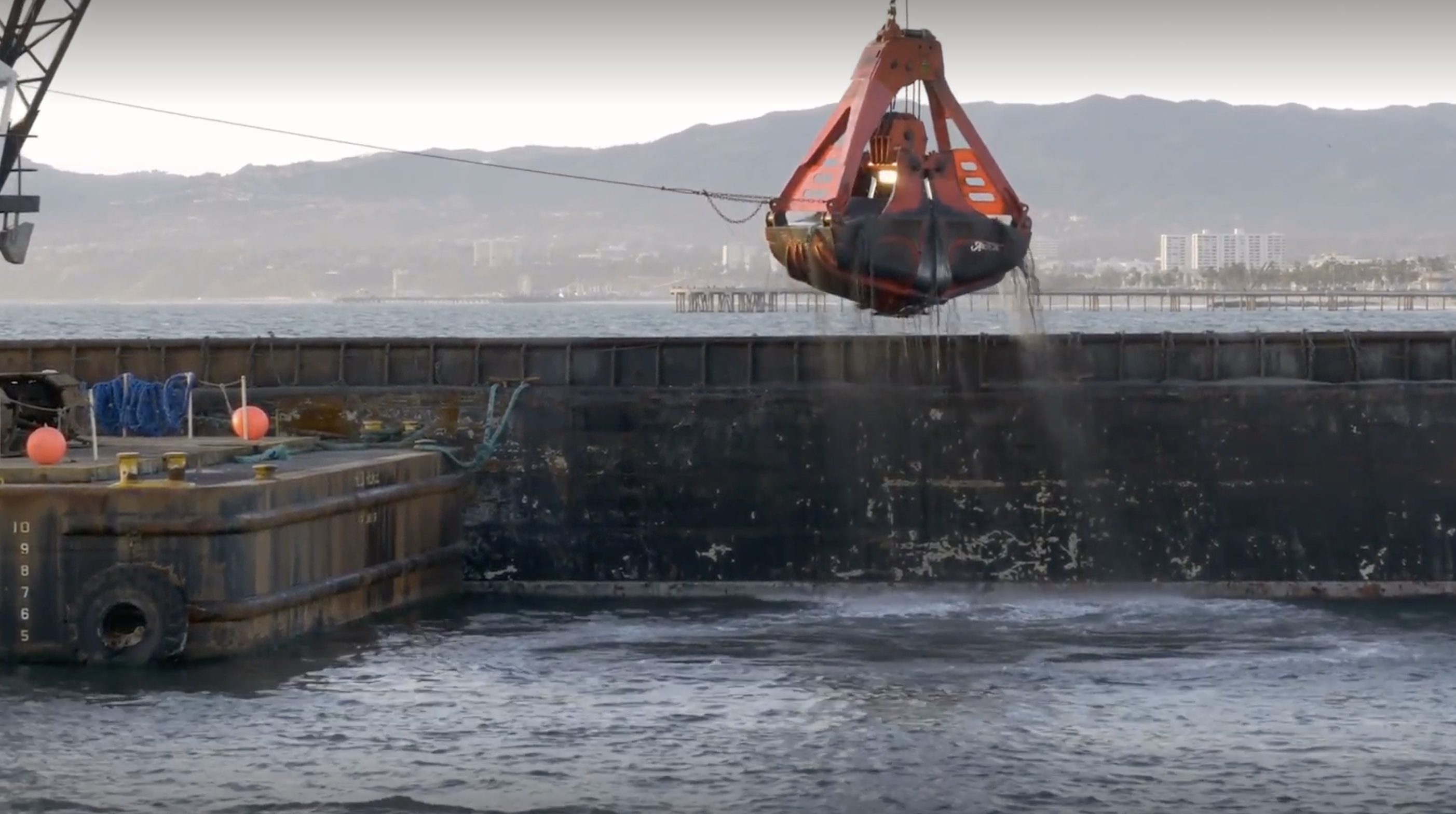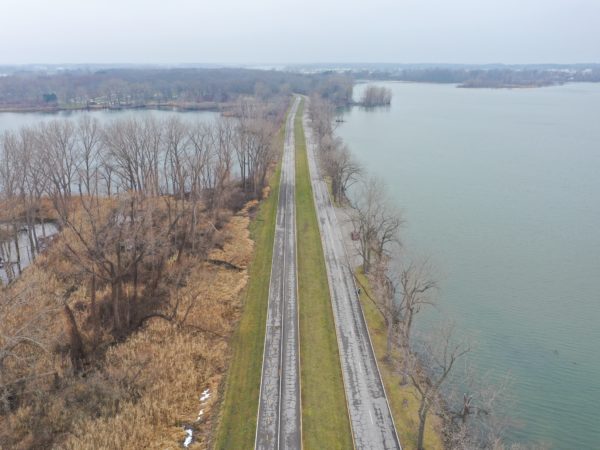
Located on the southern shore of Lake Michigan is Chicago’s Southeast Side. For years, it was an industrial powerhouse where steel mills, oil refineries and other manufacturers employed thousands of workers. “Yeah, I mean, it was great. I mean, we really didn’t, weren’t aware of a lot of the environmental pollution,” said Linda Gonzalez, a longtime Southeast side resident. For years, pollution was just part of life in that area of Chicago. When jobs started drying up, an industrial wasteland was left behind. There are at least two dozen toxic waste sites on the Southeast Side, some located near schools and parks.
For decades it was standard practice for companies to dump liquid and solid waste into nearby marshes and waterways, like the Calumet River. The river is the center of Chicago’s industrial corridor on the Southeast Side, where large freighters come in to load and unload cargo. The Calumet needs regular dredging to accommodate these huge ships, which is the job of the US Army Corps of Engineers. The muck that’s dredged up from the bottom of the river is filled with toxic materials such as PCB’s, lead, mercury, barium and other heavy metals.
Since the 1980’s, the Army Corps has been putting the toxic waste into a dump site called a Contained Disposal Facility, or CDF, where the Calumet meets Lake Michigan. It’s right next to a park where children play, and now, the site is full and the Army Corps wants to expand the dump site upward. “They want to build a 25-foot higher berm and then be able to add more space behind that to keep dumping there,” said Juanita Irizarry, Executive Director of Friends of the Parks in Chicago. “We think it’s ridiculous to do that in any case, but most certainly right on the lakeshore.”
In an effort to halt expansion of the CDF, the Environmental Law and Policy Center has filed a lawsuit against the Army Corps of Engineers on behalf of the Southeast Side community. The Southeast Side community won a partial victory when the Illinois EPA changed the permitting process for the dump site. As a result, the Army Corps of Engineers says “completion of the vertical expansion will be delayed one to two years.”
Catch more news at Great Lakes Now:
Environmental justice expert questions Michigan’s subsidies for electric vehicles
As agencies seek more environmental justice data, longtime residents are skeptical
Featured image: For decades, it was standard practice for companies to dump liquid and solid waste into nearby marshes and waterways, like the Calumet River. (Photo Credit: GLN)




